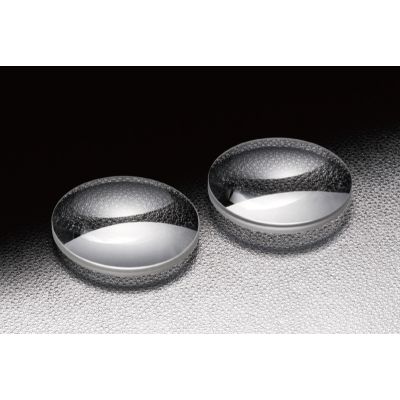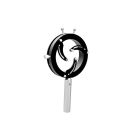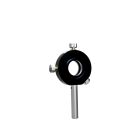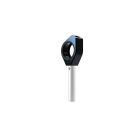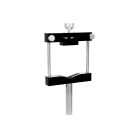Biconvex Lens 30mm Diameter 100.7mm Focal Length 750 - 1550nm
SLB-30B-100PIR2
Symmetrical biconvex lenses are most useful when dealing with finite conjugate points. This makes them ideal for 1:1 imaging applications or for use in multi-element systems.
◦There are two types of biconvex lenses available; BK7 for use in visible range to infrared wavelength range.
◦BK7 lenses are also available with three types of anti-reflection coatings, visible wavelength range, in the near-infrared range and in the infrared range.
◦Our lenses are listed by outside diameter and focal length to assist your selection according to required specifications.
◦BK7 lenses are also available with three types of anti-reflection coatings, visible wavelength range, in the near-infrared range and in the infrared range.
◦Our lenses are listed by outside diameter and focal length to assist your selection according to required specifications.
| Name | Biconvex Lens 30mm Diameter 100.7mm Focal Length 750 - 1550nm |
|---|---|
| Weight | 0.0500kgs |
| Standard Coatings Available | No |
| Guide |
|
| Remark | - |
| Attention |
|
| Diameter φD | 30mm |
| Focal length | 100.7mm |
| Material | BK7 |
| Design Wavelength | 546.1nm |
| Refractive index n<sub>e</sub> | 1.519 |
| Coating | Broadband Multilayer antireflection coating (750 - 1550nm) |
| Transmmittance | > Average 98.5% |
| Laser Damage Threshold | 4J/cm2 (Laser pulse width ; 10ns , Repetition frequency ; 20Hz) |
| Clear aperture | 85% of the diameter |
| Surface Quality (Scratch-Dig) | 20-10 |
| Wavelength range of Antireflection Coating | 750 - 1550nm |
| Diameter φD | φ30mm |
| Focal length f | 100.7mm |
| Edge thickness te | 2mm |
| Center thickness tc | 4.2mm |
| Back focal length fb | 99.3mm |
| Radius of curvature r | 103.8mm |
| Centration | <1′ |
In stock
SKU
SLB-30B-100PIR2
€64.30
Symmetrical biconvex lenses are most useful when dealing with finite conjugate points. This makes them ideal for 1:1 imaging applications or for use in multi-element systems.


